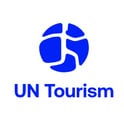UN Tourism Welcomed to German Bundestag and Strengthens Bilateral Relations
UN Tourism and the German Federal Government have agreed to strengthen bilateral cooperation, with a focus on gender equality, sustainability and greater safeguarding of tourists.

On an official visit to Berlin, UN Tourism Secretary General Zurab Pololikashvili met with the Federal Government Coordinator for Maritime Economy and Tourism, Mr. Dieter Janecek, and participated in a session of the Committee on Tourism of the German Bundestag.
In the bilateral meeting with the Federal Coordinator, discussions focused on following priority areas:
- Protection of Tourists: The Secretary General and the Federal Coordinator addressed the importance of safeguarding tourists in the context of global challenges. They emphasized the need for robust frameworks to ensure the safety, consumer protection and well-being of all travellers.
- Sustainability: Both parties underscored their commitment to sustainable tourism practices. The Secretary-General invited Germany to use the organization’s platforms to in the field to share its extensive knowledge and expertise leading the global efforts to preserve natural resources and cultural heritage for future generations, including a strong focus on climate action.
- Women empowerment: The Secretary-General reported on the success of the Centre Stage initiative, which was launched and piloted with the support of German authorities and in collaboration with UN Women. Empowering women across tourism sector and at all levels was identified as a common priority for future collaboration as the project is scaled up and implemented in other countries.
- Rural Development: Both parties exchanged their experiences with the various initiatives that promote rural destinations as the vehicles of sustainable development. The Secretary General highlighted the potential of the Best Tourism Villages by UN Tourism supporting rural destinations.
Sharing UN Tourism achievements
Following the bilateral meeting, the Secretary General attended a session of the Committee on Tourism of the German Bundestag. He provided a comprehensive report on the recent achievements of the organization, which included:
- Post pandemic recovery: Detailing efforts to support the tourism sector’s recovery from the pandemic through the development of policy guidance, safety protocols and technical cooperation projects on the ground.
- Strengthening organizational capacity: Consolidating stable and reliable financial contributions through the collection of membership fees and arrears as well as through voluntary contributions and partnerships with the private sector;
- Advancements in sustainable and responsible tourism: Highlighting initiatives that promote environmental conservation, such as the Global Tourism Plastics Initiative, and inclusion in the tourism sector, highlighting the Centre Stage project and the San Marino Action Agenda for Accessible Tourism for All;
- Multilateral cooperation: Strengthening the organization's role as a platform for exchange of knowledge and expertise, emphasizing Germany’s potential to contribute to the process.
The Secretary-General expressed his gratitude for Germany’s active role in promoting sustainable and inclusive tourism. He highlighted the importance of continued collaboration to address the evolving challenges faced by the global tourism industry.
Related Links:
- German Bundestag: UN Secretary-General for Tourism visits the Bundestag
- Centre Stage initiative
- Best Tourism Villages by UN Tourism
- Global Tourism Plastics Initiative
- San Marino Action Agenda for Accessible Tourism for All
About UN Tourism
The World Tourism Organization (UN Tourism) is the United Nations agency responsible for the promotion of responsible, sustainable and universally accessible tourism.
As the leading international organization in the field of tourism, UN Tourism promotes tourism as a driver of economic growth, inclusive development and environmental sustainability and offers leadership and support to the sector in advancing knowledge and tourism policies worldwide.
Our Priorities
Mainstreaming tourism in the global agenda: Advocating the value of tourism as a driver of socio-economic growth and development, its inclusion as a priority in national and international policies and the need to create a level playing field for the sector to develop and prosper.
Promoting sustainable tourism development: Supporting sustainable tourism policies and practices: policies which make optimal use of environmental resources, respect the socio-cultural authenticity of host communities and provide socio-economic benefits for all.
Fostering knowledge, education and capacity building: Supporting countries to assess and address their needs in education and training, as well as providing networks for knowledge creation and exchange.
Improving tourism competitiveness: Improving UN Tourism Members' competitiveness through knowledge creation and exchange, human resources development and the promotion of excellence in areas such as policy planning, statistics and market trends, sustainable tourism development, marketing and promotion, product development and risk and crisis management.
Advancing tourism's contribution to poverty reduction and development: Maximizing the contribution of tourism to poverty reduction and achieving the SDGs by making tourism work as a tool for development and promoting the inclusion of tourism in the development agenda.
Building partnerships: Engaging with the private sector, regional and local tourism organizations, academia and research institutions, civil society and the UN system to build a more sustainable, responsible and competitive tourism sector.
Our Structure
Members: An intergovernmental organization, UN Tourism has 160 Member States, 6 Associate Members, 2 Observers and over 500 Affiliate Members.
Organs: The General Assembly is the supreme organ of the Organization. The Executive Council take all measures, in consultation with the Secretary-General, for the implementation of the decisions and recommendations of the General Assembly and reports to the Assembly.
Secretariat: UN Tourism headquarters are based in Madrid, Spain. The Secretariat is led by the Secretary-General and organized into departments covering issues such as sustainability, education, tourism trends and marketing, sustainable development, statistics and the Tourism Satellite Account (TSA), destination management, ethics and risk and crisis management. The Technical Cooperation and Silk Road Department carries out development projects in over 100 countries worldwide, while the Regional Departments for Africa, the Americas, Asia and the Pacific, Europe and the Middle East serve as the link between UN Tourism and its 160 Member States. The Affiliate Members Department represents UN Tourism's 500 plus Affiliate members.
UN Tourism Communications Department
+34 91 567 8100
UN Tourism
